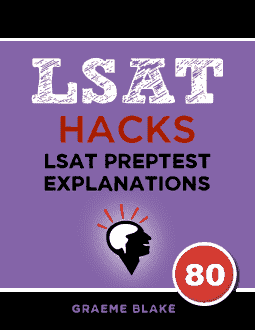QUESTION TEXT: In deep temperate lakes, water temperatures vary…
QUESTION TYPE: Necessary Assumption
CONCLUSION: Anglers should fish in shallow bays or close to the surface by rocks in order to find lake trout during late winter.
REASONING:
- Lake trout are in the coldest water.
- In summer, this is at the bottom. In winter, this is at the top.
- Turnover happens in fall and late winter.
ANALYSIS: There's a lot of details here, but the error is simple. The author is giving recommendations for late winter. That's when the temperature transitions.
The author is assuming the temperature hasn't transitioned yet. If it has, then the coldest water will be at the lake bottom.
___________
- The author isn't saying catching trout will be easy. They're only giving recommendations on the easiest place to catch trout. Easiest can still be quite hard. For example, consider competing for the easiest olympic medal.
- This may explain why cold water is where trout go (they like dense water?). But it doesn't tell us where to fish in late winter.
- This doesn't matter. The argument was about where to fish in a deep temperate lake, not about whether to do so.
- So? The argument was clear that lake trout are always in the coldest water, no matter the time of year. Feeding is irrelevant. If you want to catch fish, you have to fish where they are.
- CORRECT. If this isn't true and turnover has occurred, then lake bottoms would be the best place to fish. (Remember, turnover happens in late winter)
Negation: Late winter turnover has already happened and the coldest water is now at the bottom of the lake.
Recap: The question begins with “In deep temperate lakes, water temperatures vary”. It is a Necessary Assumption question. To practice more Necessary Assumption questions, have a look at the LSAT Questions by Type page.


Please explain to me what “eschew the lake trout’s summer haunts” means like I’m 5.
So I always tell people studying for the LSAT to make predictions about what a word means, then look them up in the dictionary. Part of getting questions right is getting good at intuiting the meaning of words you don’t know.
We know trout seek the coldest water. In winter, the coldest water is near the surface, so anglers should look at the surface. By contrast, in summer the coldest water is at the bottom. Anglers should *not* look there.
This clarifies the sentence. It means: don’t go where the trout go in summer. Go to their winter place instead.
Eschew: deliberately avoid using; abstain from:
Haunt (noun): a place frequented by a specified person or group of people
“Avoid the places the lake trout go in summer”
Hope that helps! If you make a habit of predicting words then looking them up you’ll add them to your vocabulary and improve your reading for life. This will help not just with the LSAT but also with law school and the law.
Apologies for delay in replying.
Quick comment on AC A (I feel like its elimination is a bit trickier than explained here):
It says “the ease … varies …”, therefore it’s indeed about relative ease and not absolute ease.
The problem with this AC is that it could be the case that the ease of catching the trouts can be the same as long as we know where they are located depending on the time of the year.
You’re right, I had this incorrect for A. Added it to the list to edit.
Note: This is an old comment but I wanted to address the point. For more on absolute vs. relative, check out this article.